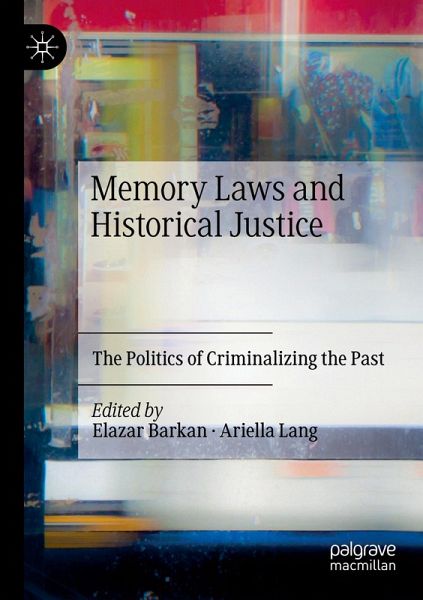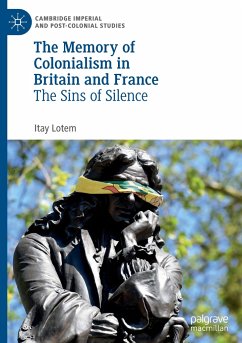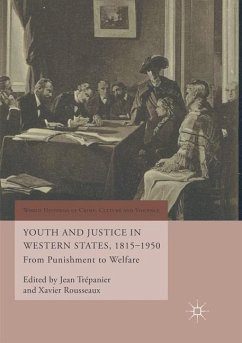
Memory Laws and Historical Justice
The Politics of Criminalizing the Past
Herausgegeben: Barkan, Elazar; Lang, Ariella
Versandkostenfrei!
Versandfertig in 6-10 Tagen
83,99 €
inkl. MwSt.

PAYBACK Punkte
42 °P sammeln!
This book examines state efforts to shape the public memory of past atrocities in the service of nationalist politics. This political engagement with the 'duty to remember', and the question of historical memory and identity politics, began as an effort to confront denialism with regard to the Holocaust, but now extends well beyond that framework, and has become a contentious subject in many countries. In exploring the politics of memory laws, a topic that has been overlooked in the largely legal analyses surrounding this phenomenon, this volume traces the spread of memory laws from their orig...
This book examines state efforts to shape the public memory of past atrocities in the service of nationalist politics. This political engagement with the 'duty to remember', and the question of historical memory and identity politics, began as an effort to confront denialism with regard to the Holocaust, but now extends well beyond that framework, and has become a contentious subject in many countries. In exploring the politics of memory laws, a topic that has been overlooked in the largely legal analyses surrounding this phenomenon, this volume traces the spread of memory laws from their origins in Western Europe to their adoption by countries around the world. The work illustrates how memory laws have become a widespread tool of governments with a nationalist, majoritarian outlook. Indeed, as this volume illustrates, in countries that move from pluralism to majoritarianism, memory laws serve as a warning - a precursor to increasingly repressive, nationalist inclinations.












